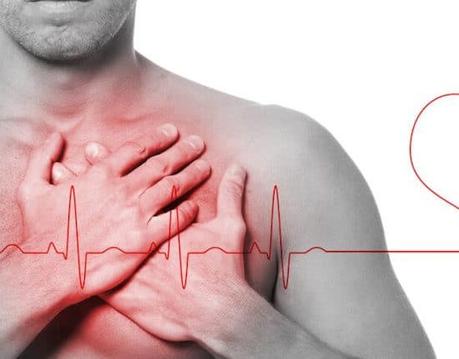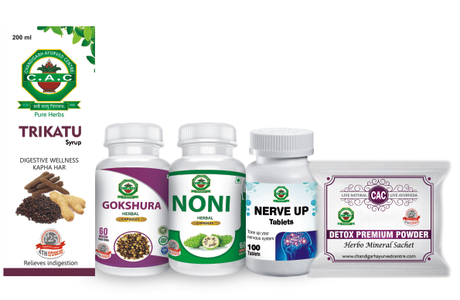
Ischemic heart diseases occurs when there is insufficient blood flow to a part/area of the heart muscle due to a blockage in the blood vessels leading to the area.
Coronary arteries carries oxygen-rich blood to the heart muscle and are the only arteries to perform this function. Any blockage in the coronary arteries reduces the supply of blood containing oxygen and nutrients to the heart muscle. This condition is defined as ischemic heart disease or coronary artery disease.
The blockage of the coronary arteries is usually caused by a build-up of plaque (fatty deposits) on the artery walls, which cause a partial or complete blockage. The build-up of fatty deposits is called atherosclerosis.
The plaque may get hard over the time, narrow the coronary artery and reduce blood supply to the heart. The plaque may also rupture and cause blood platelets to stick to the artery wall. These blood platelets may clump together and form a blood clot. Blood clots will further narrow the coronary artery or completely block the artery.
What are the types of Ischemic heart disease?
The Ischemic heart disease is mainly of three types that are mentioned below in detail:
Obstructive coronary artery disease: This disease occurs when there is formation of plaque that is formed in the large arteries causing these arteries to become narrow. It reduces the supply of oxygen-rich blood to the heart. The flow of blood can completely block one or more than three large coronary arteries.
Non-obstructive Coronary artery disease: In this type, the large arteries are narrowed by plaque. Less than 50% obstruction of the heart’s large arteries are caused by formation of plaque. It causes damage to the inner walls of the coronary arteries.
Coronary microvascular disease: This type affects the small arteries of the heart. It can happen alone or with obstructive or non-obstructive coronary artery disease. This heart disease most often occurs when molecular changes in the microvascular system take place.
Common symptoms of ischemic heart disease
You may experience ischemic heart disease symptoms daily or just occasionally. Common symptoms include chest pain, chest pressure, or shortness of breath that:
- Is relieved by rest or medicine
- May feel as if pain starting in the chest spreads to the arms, back, or other areas
- May feel like gas or indigestion (more common in women)
- Occurs repeatedly; episodes tend to be alike
- Occurs when the heart must work harder, usually during physical exertion
- Usually lasts a short time (five minutes or less)
Serious symptoms that might indicate a life-threatening condition
In some cases, ischemic heart disease can be life threatening. Seek immediate medical care if you, or someone you are with, have any of these life-threatening symptoms including:
- Chest pain, typically on the left side of the body (angina pectoris)
- Clammy skin
- Nausea with or without vomiting
- Pain in the neck or jaw
- Rapid breathing (tachypnea) or shortness of breath
- Shoulder or arm pain
The risk factors for developing ischaemic heart disease?
• Unhealthy blood cholesterol levels
• Hypertension (high blood pressure)
• Smoking
• Diabetes Mellitus — the disease causes the body’s blood sugar levels to be too high. Over time the high blood sugar levels can cause increased fatty deposits on the inside of the artery walls.
• Obesity
• Lack of physical activity – a lack of physically activity can worsen other risk factors such as high blood cholesterol, high blood pressure, diabetes, and obesity.
• Unhealthy diet — a diet that is high in saturated fats, cholesterol, salt (sodium) and sugar can worsen other risk factors
• Age
• Family history – the occurrence of early ischaemic heart disease in a family member increases the risk. This risk increases specifically if a father or brother is diagnosed with the disease before age 55 or a mother or sister is diagnosed before age 65. Complications of ischaemic heart disease Ischaemic heart disease can lead to:
• Chest pain (angina pectoris) — temporary shortage of blood supply to the heart usually causes chest pain. Chest pain and/or shortness of breath occurs most often during physical activity and stress situations.
• Heart attack — the lack of blood flow to your heart may damage your heart muscle. The severity of such damage partially depends in part on how quickly treatment is provided.
• Heart failure
• Abnormal heart rhythm (arrhythmia) — inadequate blood supply to the heart or damage to heart muscle can interfere with the heart’s electrical impulses and cause abnormal heart rhythms.
AYURVEDIC VIEW AND TREATMENT ACCORDING TO CHANDIGARH AYURVED CENTRE
In Ayurveda, ischemic heart disease is compared with the Hridya roga. When the vata dosha gets vitiated and disturbs the rasa dhatu in the body, it results in the Hridya roga or kapha dosha causing hardening of the arteries.
Ayurveda describes the following types of Hridya roga:
- Vataj Hridaroga in which the person experiences acute pain with shifting nature
- Pittaja Hridaroga in which the patient has pain with the burning sensation.
- Kaphaja Hridaroga in which the patient has pain which is mild in nature and is often associated with heaviness, nausea and cough.
- Tridoshaja Hridaroga wherein the patient experiences the mixed symptoms of the three doshas.
Single herbs useful in ischemic heart disease are:
- Arjun
- Cinnamon
- Garlic
- Turmeric
- Ginger
- Saffron
- Sarpagandha
- Brahmi
- Elaichi
- Sariva
- Fenugreek
- Guggulu
- Tulsi
- Amalaki
Ayurvedic formulations useful in this disease are:
- Arjunarishta
- Arjun Ksheer Pak
- Akeek Pishti
- Jahar Mohra Pishti
- Lakshmi Vilas Rasa
- Chandra Prabha Vati
- Sarpgandha Vati
- Amalaki Rasayan
- Lashun Rasayan
- Lashunadi Vati
- Triphala Guggulu
- Ashwagandha Churna
What is the role of Panchakarma for ischemic heart disease treatment?
Chandigarh Ayurved Centre is providing you panchakarma treatment along with the ayurvedic medicine for ischemic heart disease that increases the efficacy of medicines and fruitful results are seen. The effective panchakarma therapies that are recommended below:
Patra potli pind sweda: In this therapy medicated leaves are wrapped in a potli and then it is dipped in lukewarm oil. Massage is done with this potli over the whole body for increasing the blood circulation.
Shashti shali pind sweda: In this procedure, the shashti shali cooked rice is wrapped in a potli. Then dip this potli in lukewarm medicated oil. Do massage over the whole body to increase the blood circulation.
Uro-vasti: In this procedure, a ring is formed over the chest region, and lukewarm oil is poured in this ring several times with the help of a sponge. Massage is done on the chest region with this medicated oil so that the blockage in the heart can be removed.
DIET AND LIFESTYLE
- Take in a low fat vegetarian diet.
- Avoid smoking and consuming alcohol, drugs.
- Do regular excercises to eliminate body fat, lower total cholesterol and raise HDL cholesterol that prevents fatty cholesterol deposits.
- Practice meditation and yoga exercises.
- Avoid taking in heavy meals and late night snacks.
- Avoid eating frequently and overeating.
- Avoid eating food that would cause constipation. Patient’s bowel should be cleared regularly.
- Cow’s ghee, milk and butter should be preferred instead of buffalo’s milk, ghee and butter.
- Avoid mental tension and stress.
- Take 7-8 hours sound sleep as sleep deprivation leads to depression, blood pressure problems and other disorders that increase the risk of heart disease.
- Focus on positive attitudes, emotions and activities that increase the ojas. Ojas maintains the contentment, bliss, vitality and longetivity.
HERBAL HOME REMEDIES
- Soak one teaspoonful of fenugreek seeds in water for a night. Consume them the next morning on an empty stomach. This will reduce the cholesterol level and excess fats.
- Take half tablespoon of Trikatu powder with honey regularly. This too helps in reducing the cholesterol level and hence prevents the heart disease.
- Take three parts of powdered turmeric, six parts of grind cumin, six parts of grind coriander, six parts of grind fennel, two parts of grind fenugreek, one part of dried powdered ginger and one part ground black pepper.
- Take 5-10 grams of powdered Arjun tree bark, a cup of milk and 3 cups of water. Boil all these things till it reduces to half. This is known as Arjun Ksheer Pak. Take this empty stomach in the morning.
- Prepare a paste of about one gram of garlic in a glass of buttermilk. Drink this twice a day. This lowers the cholesterol and prevents heart diseases.
What is the Ayurvedic treatment for Ischemic heart disease?
Ayurveda is the best way of healing any kind of chronic or acute disease. As ayurvedic treatment for ischemic heart disease deals with the root cause of the disease. Chandigarh Ayurved Centre introduces “Ischemic Heart Care Kit”. This pack consists of five Ayurvedic medicines that are mentioned below in details:

1. Detox Premium Powder:
Detox Premium powder is a pure ayurvedic formulation prepared from herbs & minerals. The ingredients in this powder are shukta pishti, shankh bhasma, sutshekhar ras, kamdudha ras, parval pishti, giloy satv, etc. The antioxidant, anti-inflammatory, cardio-protective, carminative, etc properties of this powder provide effective results in general weakness, nausea, shortness of breath, anxiety, etc. All the signs & symptoms related to ischemic heart disease are treated with the regular use of this powder.
Recommended dosage: Take 1 sachet twice daily with normal water.
2. Vaat Nashik Vati:
Vaat nashik vati is a herbal preparation containing ingredients such as abhrak bhasam, jahar mohra pishti, giloy etc. These ingredients balance vata dosha in the body. Pain in the neck is managed with the use of this herbal tablet. The signs & symptoms related with ischemic heart disease are treated with the use of these herbal tablets.
Recommended dosage: Take 1 tablet twice daily with normal water.
3. Noni Capsule:
Noni capsules contain standardized extract of herb Noni (Morinda citrifolia) that is good for overall heart health. These capsules deal with the blocked arteries of the heart. The formation of plaque is overcome with the use of these herbal capsules.
Recommended dosage: Take 1 capsule twice daily with normal water.
4. Trikatu Syrup:
Trikatu syrup is an ayurvedic formula containing herbal extracts of three herbs such as Pippali (Piper longum), Maricha (Piper nigrum), & Sonth (Zingiber officinale). The herbs that are used for formulation of this syrup show antioxidant, anti-inflammatory, carminative, & immuno-modulator properties. These properties deal with the general weakness, loss of appetite, decreased metabolism, etc related to Ischemic heart disease patients.
Recommended dosage: Take 2 teaspoonful thrice daily.
5. Gokshuru Capsule:
Gokshuru capsules contain standardized extract of herb Gokhru (Tribulus terrestris). This herbal capsule deals with the blockage of the arteries in the heart. The signs & symptoms related to ischemic heart disease is treated with the regular use of these capsules.
Recommended dosage: Take 1 capsule twice daily with normal water.
